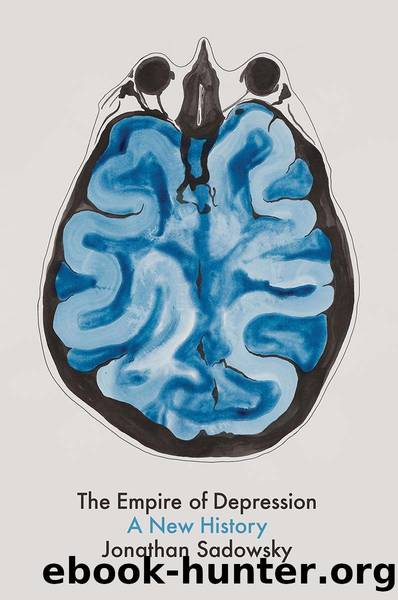The Empire of Depression by Jonathan Sadowsky

Author:Jonathan Sadowsky [Sadowsky, Jonathan]
Language: eng
Format: epub
ISBN: 9781509531660
Published: 2020-11-23T00:00:00+00:00
Manualization and its Discontents: The DSM Wars
If new rating scales and new therapies were partly efforts to manualize depression, that effort reached full expression with revisions to the DSM beginning in the 1970s. A growing sense that psychiatric diagnosis was flawed haunted the mental health field. Some psychoanalysts avoided diagnoses, seeing them as rigid categories that miss the individuality of the person in pain.117 Outside of psychoanalysis, Meyer, even as he promoted the term âdepression,â worried that all psychiatric diagnoses risked narrowing clinical vision of the totality of the patientâs personality and environment.118 But what is medical practice without reliable diagnosis? And did psychiatry have any?
British and American psychiatrists gave different diagnoses when seeing the same cases on tape.119 Within America, psychiatrists agreed on diagnosis of the same patient only about 30 percent of the time.120 Most infamously, psychologist David Rosenhan and his research team pretended to be insane and easily got schizophrenia diagnoses and mental hospital admissions.121 Could psychiatrists not even tell the difference between someone with psychosis and someone pretending? Rosenhanâs study was methodologically weak, perhaps outright fraudulent.122 Fraud aside, all Rosenhan showed is that you can feign illness.123 Students with unfinished homework have always known this. But Rosenhan struck at a time when psychiatry was already vulnerable. An influential antipsychiatry movement, led by people like Thomas Szasz, claimed that the whole field of psychiatry was a crock, and not properly a part of medicine.
The crisis of diagnosis shadowed the creation of the third edition of the DSM. The DSM has gone through several revisions, but the change between DSM-II and DSM-III was the biggest and had a huge impact on depression diagnosis. The key figure was Robert Spitzer, a psychiatrist with psychoanalytic training. Spitzer grew disillusioned with his own psychoanalyst, who was a follower of Wilhelm Reich.124 Reich had written insightful books about character formation and the psychology of politics early in his career, but later had some flaky ideas, and was a fringe figure in psychoanalysis by the time Spitzer was in analysis. Spitzer would later seek to purge the DSM of psychoanalytic assumptions. But more, he wanted a manual with no speculation about the causes of mental disorders, one that stuck to symptoms everyone could observe.
The creation of the DSM-III has been widely criticized.125 The authors hoped to find what psychiatrists could agree upon, or at least to avoid controversial moves that would alienate many. The meetings, though, were chaotic affairs where often the loudest voices won out, not necessarily the ones with the most scientific merit.126 The chaos and politics of the process are unfortunate. A more orderly process might not have yielded a better manual, though, because available knowledge was not conclusive enough.
Psychoanalysts and Meyerians may have been less driven to fit each patient to a label, preferring attention to unique constellations of suffering. But insurance companies were less interested in unique constellations of suffering. The use of insurance to cover out-patient psychiatric treatment was growing in the 1970s.127 To provide payment, the companies wanted a specific diagnosis.
Download
This site does not store any files on its server. We only index and link to content provided by other sites. Please contact the content providers to delete copyright contents if any and email us, we'll remove relevant links or contents immediately.
Professional Troublemaker by Luvvie Ajayi Jones(29644)
Whiskey Words & a Shovel I by r.h. Sin(19387)
Rewire Your Anxious Brain by Catherine M. Pittman(18632)
Healthy Aging For Dummies by Brent Agin & Sharon Perkins RN(17033)
Cat's cradle by Kurt Vonnegut(15324)
Talking to Strangers by Malcolm Gladwell(13339)
The Art of Thinking Clearly by Rolf Dobelli(10407)
They Both Die at the End by Adam Silvera(9801)
The 5 Love Languages: The Secret to Love That Lasts by Gary Chapman(9773)
Doing It: Let's Talk About Sex... by Hannah Witton(9273)
The Compound Effect by Darren Hardy(8918)
Thirteen Reasons Why by Jay Asher(8881)
Goodbye, Things by Fumio Sasaki(8571)
Wonder by R.J. Palacio(8565)
Tools of Titans by Timothy Ferriss(8360)
Atomic Habits: Tiny Changes, Remarkable Results by James Clear(8315)
Becoming Supernatural by Dr. Joe Dispenza(8194)
Wonder by R. J. Palacio(8096)
Change Your Questions, Change Your Life by Marilee Adams(7732)
